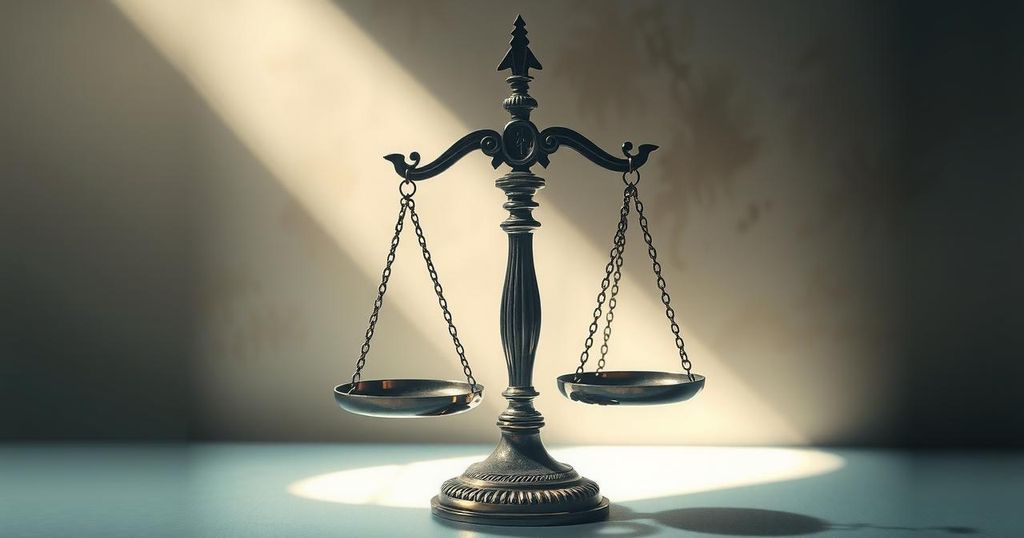Human Rights Watch Reports Dire Human Rights Situation in Ethiopia (2024)

In its 2024 report, Human Rights Watch describes Ethiopia’s human rights situation as dire, highlighting ongoing conflict, civil society restrictions, and systemic impunity for human rights abuses. The Amhara region faces severe atrocities, including extrajudicial killings and sexual violence. Humanitarian conditions are deteriorating, with increasing risks for aid workers and citizens alike amid government crackdowns on dissent and a stifling media environment.
Human Rights Watch (HRW) has portrayed Ethiopia’s human rights situation in 2024 as extremely severe, highlighting widespread conflict, civil society repression, and a culture of impunity regarding human rights abuses. Their annual report points to violations committed by government forces, militias, and non-state actors, particularly in the Amhara region, which has become an area of profound humanitarian concern. Abuses documented include war crimes, extrajudicial killings, sexual violence, and unlawful detentions, contributing to an alarming escalation of violence and systemic instability within the nation.
The continued conflict in the Amhara region represents one of the gravest challenges, with HRW accusing both government troops and Fano militias of engaging in wartime atrocities. Reports indicate that Ethiopian military forces executed civilians summarily and perpetrated acts of torture. Moreover, Fano militias have faced allegations of committing multiple abuses against civilians, further complicating the security landscape in this region.
The humanitarian crisis has intensified in Amhara, marked by what HRW has characterized as the highest levels of violence in the country. The growing danger prompted the UN to contemplate suspending humanitarian operations after the tragic deaths of eight aid workers in 2024. Meanwhile, in Tigray, abuses were reported from Eritrean forces, including sexual violence and looting, alongside a troubling increase in kidnappings across Ethiopia.
The state of emergency that was extended in February has allowed government forces to conduct mass arrests and imposed severe restrictions on freedom of movement, targeting journalists and opposition voices. Amnesty International revealed that hundreds of individuals were detained in Amhara, underscoring the challenge of political dissent. Journalists have faced a precarious environment, with many opting for self-censorship or exile amidst significant governmental pressure.
Civil society organizations have also endured intense scrutiny and harassment, particularly the Ethiopian Human Rights Council. Several organizations, including the Center for the Advancement of Rights and Democracy, were suspended by the authorities, limiting the space for civil engagement. While the government introduced a transitional justice policy, HRW criticized its lack of transparency and effectiveness in achieving accountability for documented abuses.
HRW noted that the Ethiopian authorities have consistently denied or downplayed claims of abuse, while the government’s international partners continue to engage with it despite ongoing human rights violations. This dynamic raises concerns regarding the international community’s commitment to addressing human rights abuses in Ethiopia, as transparency and accountability remain pressing issues in the region.
Ethiopia’s human rights landscape has been heavily affected by prolonged conflict, particularly in regions such as Amhara and Tigray. Armed groups and government forces alike have been implicated in severe human rights violations, leading to a humanitarian crisis and alarming reports of wartime atrocities. The deteriorating situation has resulted in increased risks for civilians, where aid efforts face significant hindrances, and civil liberties are under notable threat due to state actions and emergency measures.
The report by Human Rights Watch paints a troubling picture of the human rights situation in Ethiopia, marked by flagrant abuse and repression. As widespread violence persists, the international community must reflect on its relations with the Ethiopian government and advocate for meaningful reforms to uphold human rights and accountability. Without proper oversight and accountability, the cycle of violence and impunity is likely to continue, adversely affecting the lives of countless Ethiopians.
Original Source: addisstandard.com








